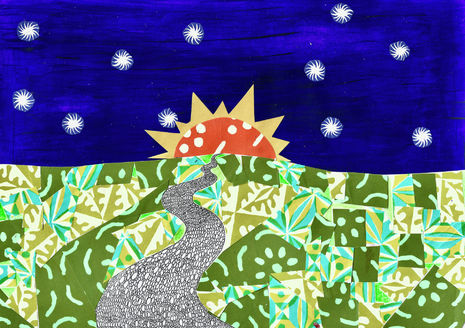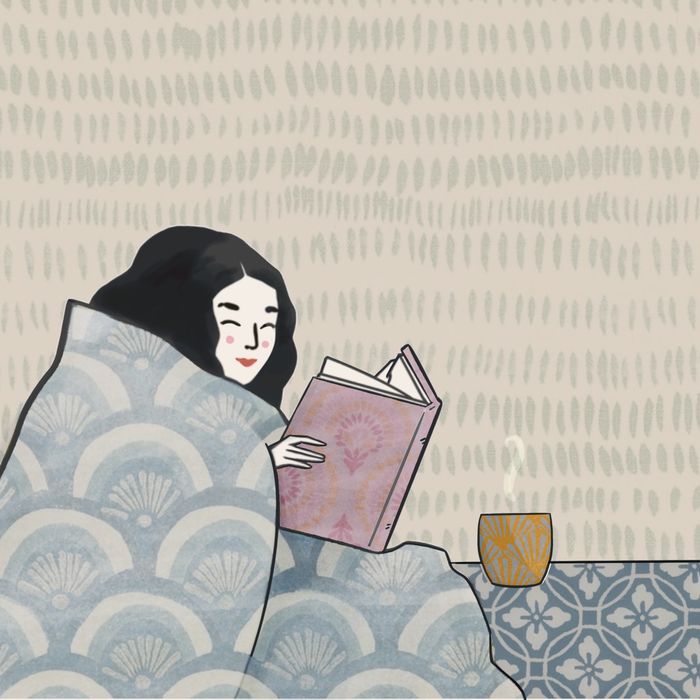What my dad’s admiration for Chinese philosopher Lao Zi has taught me about courage
Vicky Wang describes how the writings of Lao Zi have influenced her father and, in turn, her entire life.

I first encountered the Taoist idea of Dao only moments after my birth, when my father decided I was going to be named after the writings of his lifelong hero, Chinese philosopher Lao Zi. The two-character combination my father chose, Yu Er (which translates into Rain Child in English) originated as a distillation of four lines in Lao Zi’s Dao De Jing, which reads: “Heaven and Earth (under the guidance of Dao) conspire and unite to send down sweet dew, which, without the directions of men, reaches equally everywhere as of its own accord.” For my parents, I was the ‘sweet dew’ that had descended from this force of Dao who, by being named after it, became inextricably linked to its workings.
“Dao, he would tell me, is a formless, shapeless force. It gave birth to the cosmos as nonbeing became being, and still continues to dictate the workings of the world today.”
Those who are familiar with the works of Lao Zi know how difficult it is to translate the word Dao; throughout Dao De Jing’s reception history, academics and historians alike have been baffled by the sheer scope of interpretative possibilities that lie within this single word. For this reason, I won’t attempt a definition myself. Instead, what I can do is use my dad’s words, spoken on many a summer evening while we sat on our twenty-fourth-floor balcony, enjoying the warm breeze and looking down onto the panoply of lights that decorate the city panorama. It was always at these times –when thoughts remain unoccupied – that my dad began his sermons, uttering the words so familiar to me now that I can easily repeat them today. Dao, he would tell me, is a formless, shapeless force. It gave birth to the cosmos as nonbeing became being, and still continues to dictate the workings of the world today. To follow Dao is to walk on a path that observes the natural contour of the universe; to understand it is to wield the tides of the future as it emerges from the past.
I used to nod along to his words, but only in the past few years of my life did I come to realise their significance. I left Beijing for Sydney when I was thirteen. Saying goodbye to family and friends was hard for me, but what was even harder was the acute feeling of untethering that accompanied my leaving. As friends turned into acquaintances, and as time chipped away at the cityscape I once loved, what started as discomfort became grief as I mourned the life I left behind. I reached a breaking point one Friday evening on the way home from school, a crying and blubbering mess, feeling as if the rug had been completely pulled out from underneath me. I was thousands of miles from home; homesick, depressed. Hearing this, my dad booked the next ticket to Sydney, and was at our doorstep by Saturday morning. Just like he had done so many times before, he sat me down and began telling one of his many stories.
It happened fifteen years before I was born. He had just mustered up the courage to quit his steady job and pursue his dream of going to art school overseas. On this trip to Europe, he stopped to rest for the night at a hotel in Moscow. There, he was robbed at gunpoint. Without money and with only a few Russian words, he had no way of returning home and no way of continuing on. That night, as he sat on the curb outside the hotel with nowhere to go and no one to turn to, he thought of reading Lao Zi as a child. As he looked to the skies and imagined the family waiting for him at home, he recalled reading Dao De Jing: Dao gave birth to the universe, and at last all things will return to Dao. The natural workings of the world follow this cyclical pattern, so when there is a fall, there too must be a rise: to experience hardship is to anticipate its counterpart.
“There are still times in my life when I worry myself sick. In these times, I imagine a path appearing beneath my feet.”
My dad wouldn’t return home until three years later, with his dreams of becoming an artist completely dashed. Yet whenever my dad speaks of this period in his life, he does so fondly and always with a good laugh, because what he gained in its place was an immense sense of inner strength, built not on resistance, but a complete yielding to the forces shaping his path.
There are still times in my life when I worry myself sick. In these times, I imagine a path appearing beneath my feet. The path has no definable edge and no tangible substance, and when I look down as I walk, I can see a hazy outline of shadowed movement, indicating forward progress. Yet although I don’t quite know where I am going, the natural course of the path leads me unerringly forward, and when I succumb to its current I emerge firmer and steadier in my footing. Years after my father first read to me from Dao De Jing, this is what I imagine Dao means.
 Features / Should I stay or should I go? Cambridge students and alumni reflect on how their memories stay with them15 December 2025
Features / Should I stay or should I go? Cambridge students and alumni reflect on how their memories stay with them15 December 2025 News / SU reluctantly registers controversial women’s soc18 December 2025
News / SU reluctantly registers controversial women’s soc18 December 2025 News / Dons warn PM about Vet School closure16 December 2025
News / Dons warn PM about Vet School closure16 December 2025 News / Cambridge study finds students learn better with notes than AI13 December 2025
News / Cambridge study finds students learn better with notes than AI13 December 2025 Arts / A beginner’s guide to Ancient Greek tragedy16 December 2025
Arts / A beginner’s guide to Ancient Greek tragedy16 December 2025









